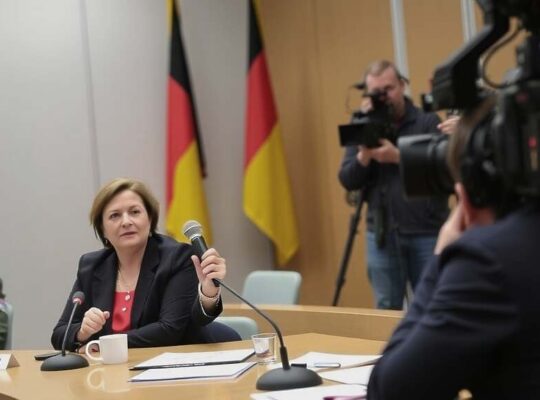The German Federal Minister for Transport, Patrick Schnieder (CDU), is scheduled to present a strategy next Monday outlining the future direction for the struggling national rail network. Reports suggest the plan may lack legally binding force, falling short of initial expectations.
According to information obtained by “Der Spiegel”, the strategy represents a concept originating from the Transport Ministry itself, rather than a unified decision by the entire Federal Government. Minister Schnieder had previously announced a paper addressing the government’s approach as the rail network’s owner. However, implementation would necessitate formal approval from the Federal Cabinet, a process the Ministry declined to comment on.
Concerns are growing within the rail industry that the strategic void of the past will persist. Dirk Flege, Managing Director of the industry association Allianz pro Schiene, emphasized that a concept lacking a Cabinet resolution would constitute a “significant deficit in commitment” highlighting a previous failure of an owner strategy during the last government due to a lack of consensus.
The crisis facing the rail network continues to deepen, particularly within the freight division. Auditors reportedly withheld an unrestricted audit certification for DB Cargo, raising concerns about the company’s viability. Freight volumes are projected to decline by a further quarter this year, potentially falling up to 15 percent below projected targets.
The core of the challenge lies in the “single wagonload” transport sector, where individual freight wagons are picked up and transported on behalf of corporations. A commissioned report from consultancy Oliver Wyman, spearheaded by board member Sigrid Nikutta, recommended substantially scaling back this business. This recommendation clashes with the Federal Government’s climate policy agenda, which aims to shift more freight transport to the rail network.
Under political pressure, Nikutta has requested a revised report from the consultants. An extraordinary supervisory board meeting for DB Cargo is now scheduled for October 31st due to the delay in the revised report’s completion.
DB Cargo intends to close ten workshops, a measure the railway union EVG deems unsustainable without a comprehensive overarching strategy. Cosima Ingenschay, a board member of the EVG, criticized what she described as a “salami tactic” from the board, demanding new cuts without a clear direction. The union had previously pledged concessions, such as allowing employees to begin and end their shifts at home, but claims management is failing to capitalize on opportunities for efficiency gains.












